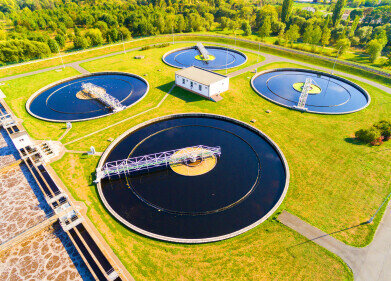Water/Wastewater
How Much Oxygen Have Our Oceans Lost?
Mar 20 2017
Making up over 70 percent of the earth, it’s fair to say our oceans are pretty important. Around 97 percent of the Earth’s water is in them, as well as an abundance of wildlife and – for some – an important food source. But over time, they have lost a considerable amount of oxygen, leading to a range of negative effects. Read on to see just how much oxygen has seeped out of the world’s waters and why it’s a problem.
Why do the oceans need oxygen?
The ocean is home to a massive selection of species. There are over 228,000 known so far, with nearly 1,500 discovered last year alone. In fact, some scientists think there are far more species – as many as 2 million – yet to be discovered. And this is exactly why the ocean needs oxygen. Without it, this huge biodiverse environment will suffer because fish simply cannot survive without enough oxygen.
The current loss of oxygen has pushed more fish towards the oxygen-rich surface. But this completely disturbs the food chain as predators and prey are in the same narrow band of water. Prey become sparse in number. Predators become too fat because they no longer have to hunt. And overfishing occurs because more big fish are near the surface.
Steadily decreasing
So how much have they actually lost? According to the latest study, oceanic oxygen levels have dropped by 2 percent in just 50 years. Why? It’s simple – global warming. As the temperature of the earth’s atmosphere rises, so too does the average temperature of the ocean.
A warmer ocean not only takes up less oxygen than colder water, but hinders circulation of the ocean, meaning less oxygen is transported to deeper waters. And the scientists at the GEOMAR foundation have predicted that the oxygen loss could grow to as much as 7 percent by 2100.
A warmer atmosphere is bad news all round
On top of the decrease in oceanic oxygen levels, the rise in atmospheric temperature is renowned for its damaging effect on the polar ice caps. As they melt, the sea level rises which, over time, leads to floods in coastal areas and even some land disappearing. Inland regions can suffer too, as the warmer atmosphere can evaporate and hold more water.
When this comes down, it spells bad news for those on the receiving end. This is exactly what happened to the UK in the winter of 2015/16. But will it continue to happen, or can we find ways to prepare and deal with it? ‘What we can learn from 2015 /2016’s extreme flooding?’ explores how we can adapt to prevent severe flooding.
Digital Edition
IET 34.2 March 2024
April 2024
Gas Detection - Biogas batch fermentation system for laboratory use with automatic gas analysis in real time Water/Wastewater - Upcycling sensors for sustainable nature management - Prist...
View all digital editions
Events
Apr 22 2024 Hannover, Germany
Apr 22 2024 Marrakech, Morroco
Apr 23 2024 Kuala Lumpur, Malaysia
Apr 23 2024 Kintex, South Korea
Apr 23 2024 Edmonton, AB, Canada


















